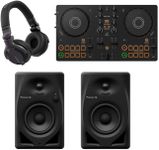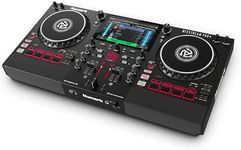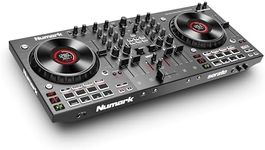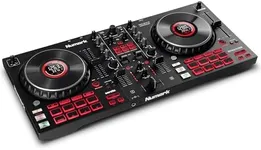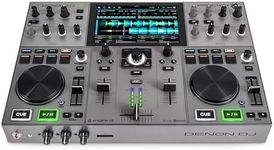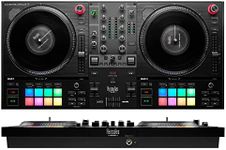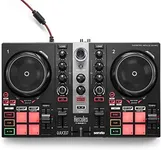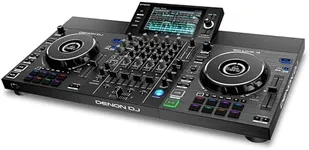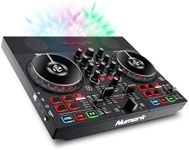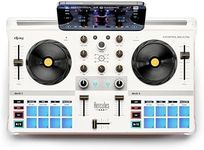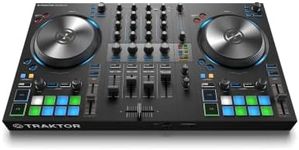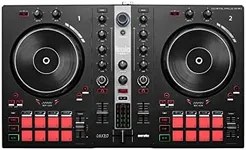Buying Guide for the Best Beginner Dj Decks
Choosing the right DJ deck as a beginner can be a thrilling yet daunting task. The right deck will help you learn the ropes of DJing, develop your skills, and enjoy the process. When selecting a DJ deck, it's important to consider several key specifications that will impact your experience and growth as a DJ. Understanding these specs will help you make an informed decision and find the best fit for your needs.Number of ChannelsThe number of channels on a DJ deck determines how many audio sources you can mix simultaneously. For beginners, a 2-channel deck is usually sufficient as it allows you to mix two tracks at once, which is a great way to start learning the basics. As you progress, you might want to explore 4-channel decks, which offer more flexibility and creativity in your mixes.
Jog WheelsJog wheels are the large, circular controls on a DJ deck that allow you to manipulate the music, such as scratching or adjusting the tempo. They are essential for hands-on control and a tactile DJing experience. For beginners, it's important to choose a deck with responsive and well-sized jog wheels that feel comfortable to use. Larger jog wheels can provide better precision and control, which is helpful when learning.
Built-in EffectsBuilt-in effects, such as reverb, echo, and flanger, can add creativity and flair to your mixes. Having a variety of effects at your disposal allows you to experiment and develop your unique sound. For beginners, a deck with a good selection of easy-to-use effects can be very beneficial. Look for decks that offer intuitive controls for these effects, so you can focus on learning how to use them effectively.
Software CompatibilityDJ decks often come with software that allows you to manage and mix your music library. It's important to choose a deck that is compatible with popular DJ software, such as Serato, Rekordbox, or Traktor. This compatibility ensures that you have access to a wide range of features and updates. For beginners, it's helpful to choose a deck that comes with user-friendly software that offers tutorials and support to help you get started.
Connectivity OptionsConnectivity options determine how you can connect your DJ deck to other equipment, such as speakers, headphones, and computers. Common connectivity options include USB ports, RCA outputs, and headphone jacks. For beginners, it's important to choose a deck with versatile connectivity options that allow you to easily set up and expand your DJ setup as you grow. Make sure the deck has the necessary ports to connect to your existing equipment.
PortabilityPortability is an important factor if you plan to take your DJ deck to different locations, such as parties or gigs. A lightweight and compact deck is easier to transport and set up. For beginners, a portable deck can be very convenient, especially if you don't have a dedicated space for DJing. Look for decks that are sturdy yet lightweight, and consider whether they come with a carrying case or bag for added convenience.
